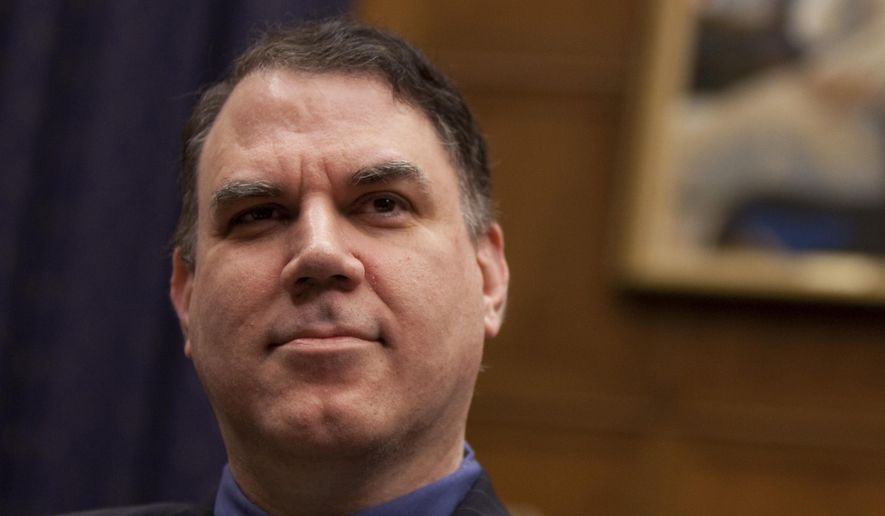OPINION:
There may be some good to come yet from the unfortunate events in Ferguson, Mo. The Senate Homeland Security and Governmental Affairs Committee will hold a hearing Tuesday about the perils of militarizing law enforcement. It’s part of Senate Democrats’ attempt to turn the tragedy there into fuel for racial politics, but attention to war weaponry for cops is welcome, anyway.
Surplus weapons and what to do with them is a problem of decades running. When the issue bobbed up in the House three months ago, only 19 Republicans and 43 Democrats expressed concern about putting surplus Pentagon firepower into the untrained hands of small-town cops.
Democrats have taken the lead in the House about doing something about it. Rep. Alan Grayson, Florida Democrat, had offered an eminently sensible amendment to a spending bill that would have kept local departments from receiving “aircraft (including unmanned aerial vehicles), armored vehicles, grenade launchers, silencers, toxicological agents (including chemical agents, biological agents, and associated equipment), launch vehicles, guided missiles, ballistic missiles, rockets, torpedoes, bombs, mines or nuclear weapons.”
It’s not clear why 335 congressmen, both Democrats and Republicans, voted against Mr. Grayson’s amendment. Perhaps they wanted to make sure that the Mayberry Police Department could stock up on ICBMs and the latest in torpedoes. Rep. Rodney Frelinghuysen, New Jersey Republican, told his colleagues not to worry about the weapons. “They are overseen by responsible elected officials,” he said.
Mr. Grayson observed that even “responsible elected officials” might not necessarily do everything right with the equipment, either. He challenged his colleagues to cite one instance of terrorists thwarted by armored vehicles and fully automatic rifles in the hands of law enforcement. None did.
Tom Coburn of Oklahoma, a Republican senator retiring at the end of this Congress, has long been a critic of the $35 billion in grants by the Department of Homeland Security to enable one-stoplight towns to buy advanced arms. But the opportunity to replace battered prowl cars with second-hand Humvees is enough to turn other small-town departments olive drab with envy. In his “Safety at Any Price” report two years ago, Mr. Coburn scolded the administration for dispensing $250,000 to the cops in Keane, N.H., to buy a BearCat armored vehicle “to protect the town’s annual pumpkin festival.”
The militarization of police forces shouldn’t be a partisan issue. The Pentagon’s surplus-equipment program was inaugurated in the 1990s, and President George W. Bush was as enthusiastic about it then as President Obama is now. Curbing this program ought to attract bipartisan support.
At a minimum, Congress should audit all sensitive military equipment issued to police departments. Yahoo News recently reported that dozens of fully automatic M16 and M14 rifles have gone “missing.” Last December, a man collected a Humvee from the police in Palestine, Ark., population 681, and took it for a joyride. Finally, someone in Palestine found a use for it.
By requiring law enforcement to document how this equipment has been used in the field, residents in towns like Palestine could decide whether they really need a Humvee. The guns and tanks remain Defense Department property and can be recalled at any time. Mr. Obama could set the example by recalling everything from Ferguson.
Enabling cops to take surplus file cabinets, fax machines and other office supplies from the military is a good thing, but as Mr. Obama once said in a different context, “Weapons of war have no place on our streets.” They have no place in the pumpkin patch, either.




Please read our comment policy before commenting.